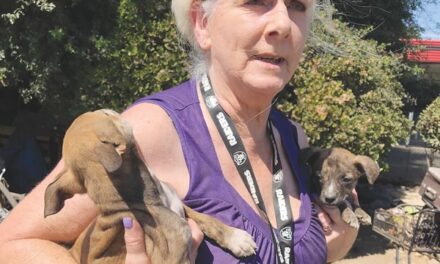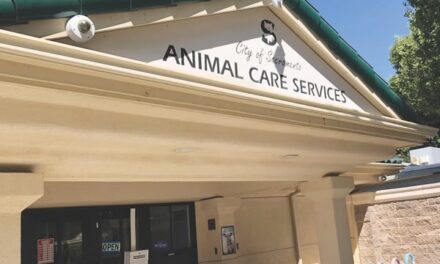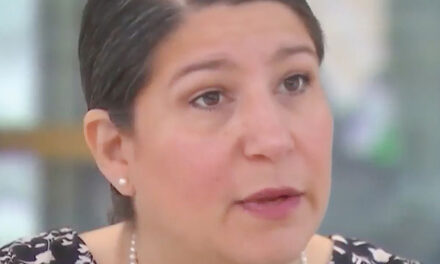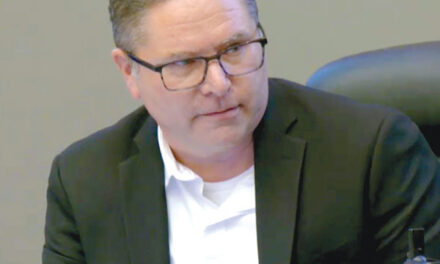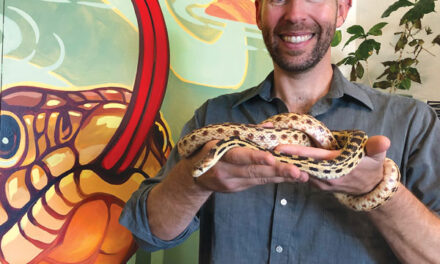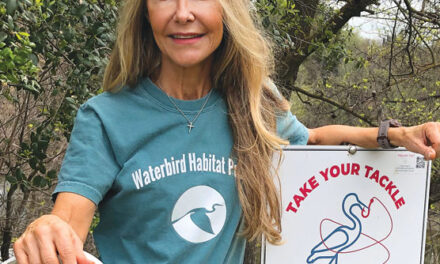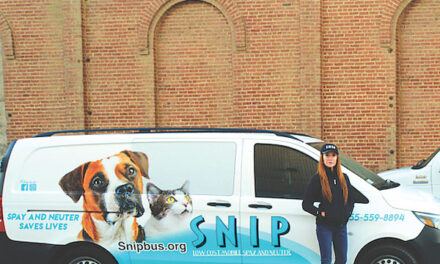I’ve been in Sacramento long enough to remember the old county animal shelter—when “pounds” existed simply to impound strays. The dilapidated, dungeon-like building was cramped and dingy—where unwanted dogs and cats went to die.
When the public’s attitude toward companion animals began to change, shelters across the country broadened their scope to promote spaying and neutering, encourage adoptions, and recruit donors and volunteers.
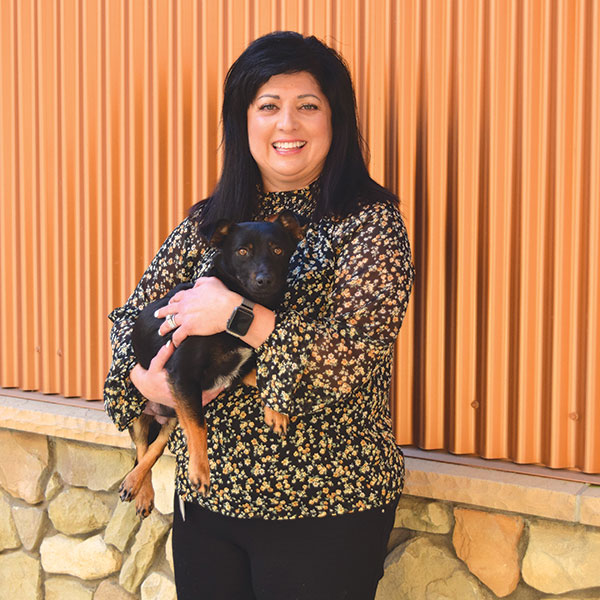
In 1995, the Sacramento County Board of Supervisors approved a new $23 million animal facility. The 39,000-square-foot complex on 7 acres along Bradshaw Road opened in 2009.
Today’s county shelter features large indoor and outdoor dog kennels, individual cat condos, “habitat rooms” with viewing windows, behavior evaluation space, laundry and food prep areas, a multi-purpose auditorium for meetings, public artwork and patio courtyards, a barn and pasture area, and a spacious public dog park.
“People are much more educated these days about what services shelters provide the community,” says Annette Bedsworth, new director of the Bradshaw Animal Shelter. Bedsworth stepped into the role Feb. 14, replacing David Dickinson who retired last year after more than 20 years with county Animal Care and Regulation.
“One of my goals is to make the Bradshaw Animal Shelter stand out in the community,” says Bedsworth, who oversees 55 full-time employees and a facility that takes in 13,000 animals a year (pre-COVID), with an annual budget of nearly $11 million. “Get more community engagement and more community support.”
Bedsworth comes to Sacramento with 33 years of public service in Stanislaus County. In 2008, she became executive director of the Stanislaus animal shelter in Modesto.
“I’ve always loved animals,” says Bedsworth, who grew up on a farm in Ceres. “We had cows, goats, pigs, dogs, cats. But I did my homework before becoming director of Stanislaus Animal Services. I knew I had the expertise for the management part. But before I accepted the position, I had to watch a euthanasia.”
At the time, Stanislaus was euthanizing a hundred cats and kittens a day, Bedsworth says. “There was no program—nothing. That’s how animal services were delivered. About the seventh time I watched a euthanasia, I decided, I can do this because we need to stop this. This cannot be the norm. That was the turning point for me. We needed to do something different in our community.”
Living in Hughson—a small town 5 miles east of Modesto—and married one year, Bedsworth considered retiring this year to join her husband, who works for the state and lives in Elk Grove. “When this job became available, it seemed like a perfect fit,” says Bedsworth. She accepted the Bradshaw position and moved to Elk Grove.
At the Stanislaus shelter, she implemented a dog license amnesty program, where 8,000 new licenses were issued in 30 days, plus free microchips. A community cat program increased the “live release rate” from 9 percent to more than 90 percent. Healthy adult cats were spayed or neutered and returned to their neighborhoods.
In Sacramento, Bedsworth’s immediate goal is to decrease lengths of stay. “The national average is 9.5 days for pets,” she says. “We are at 38 days right now. That’s too long. We need to focus on implementing new services when it comes to adoptions.”
She plans to increase the shelter’s presence on social media, create a more user-friendly website and employ a “foster to adopt” program where pets go into homes immediately instead of waiting for spay or neuter surgery that may be a week out.
“For a week, the dog is more socialized in the home. The chance of getting kennel cough decreases,” Bedsworth says. The foster parent brings the animal back for surgery, then adopts.
She also plans to hire a rescue coordinator who will establish partnerships with nonprofit rescue groups that can help relieve overcrowding. “Rescue organizations are part of the whole life-saving equation,” Bedsworth says.
“Once you get into working in animal welfare, life-saving becomes an addiction. I understand why people are so compassionate about animals, because they are our family.”
For information on adopting, volunteering or donating, visit animalcare.saccounty.gov.
Cathryn Rakich can be reached at crakich@surewest.net. Follow us on Facebook, Twitter and Instagram: @insidesacramento.




